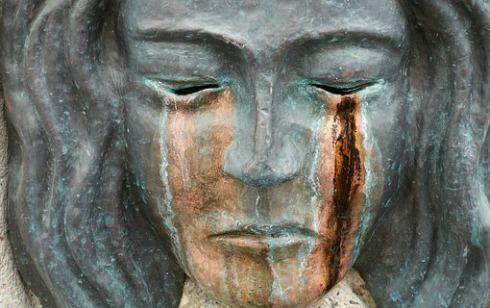 Suicide affects all groups in society. Teachers, doctors, miners, church ministers, and police have all grieved for colleagues who have taken their own lives, and have friends who have survived the suicide of family members. They can put faces to suicide.
Suicide affects all groups in society. Teachers, doctors, miners, church ministers, and police have all grieved for colleagues who have taken their own lives, and have friends who have survived the suicide of family members. They can put faces to suicide.
But when people kill themselves their personal face is stripped away from them. They come to wear the impersonal mask of what they have done. Who they are is obscured by this one final thing that they have done. They may become things and abstractions, objects of fear and not the subjects of tender memories. Too often, too, the varied faces of family and friends who survive them are also obscured by the mask of suicide.
The mask is fixed in place by the silence that envelops suicide. The initial silence of incomprehension why any person would take their own life; the silence of inner confusion in which grief and sympathy are mingled with anger; the silence that says eloquently that we have no words that fit; the silence of shame that suicide should have insinuated itself into our family, our circle; the silence of guilt that we should have anticipated and prevented this death.
Silence freezes the mask into place. People avoid those who wear it and do not mention it, half because they also lack words but also because they secretly fear it is contagious. As a result, all disappear behind the mask and become strangers to one another. They are not defined by their love for the person who died or by their relationship to one another, but by the mask of suicide, they have come to wear and by the silence that holds them separate from one another.
If you wear a frozen mask you cannot accept nourishment and you starve. The remedy is to melt the silence that freezes on the mask by speaking about the person who died and the circumstances of their death. In this way, you recover become free from fear and rediscover yourself alongside the person who took their life.
Banishing silence and recovering oneself is the goal of the Jesuit Social Services program, Support after Suicide. It encourages people to speak by providing sympathetic and skilled ears and offers a place where people can speak with others who have had the same terrible experience. Conversation gradually thaws the icy mask and recovers the humanity both of the person who died and of those who grieve them. It plants seeds of gratitude, respect, and compassion in place of the toxic weeds of blame and denial.
Anger, guilt, fear, and isolation fester until they are exposed to light. They also feed our terrors and freeze our relationships. They are best dispelled by conversation.
Learn more about Jesuit Social Services - Support After Suicide here